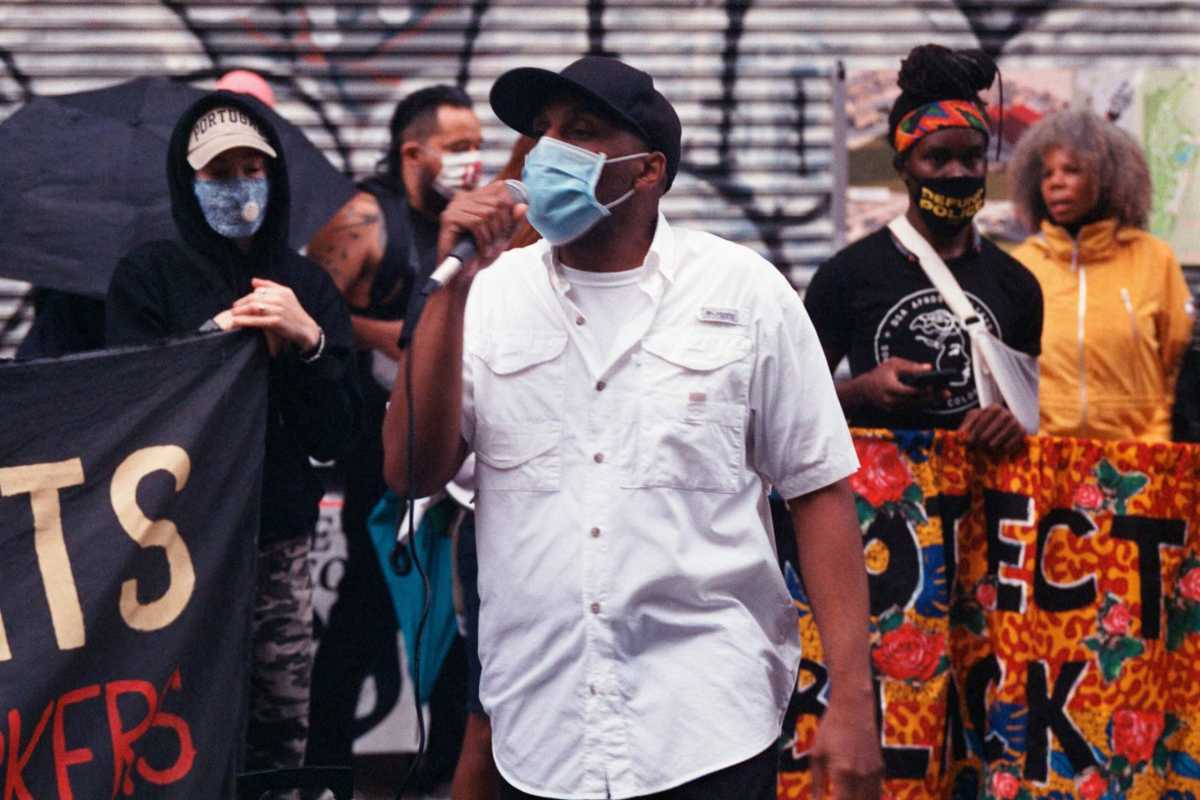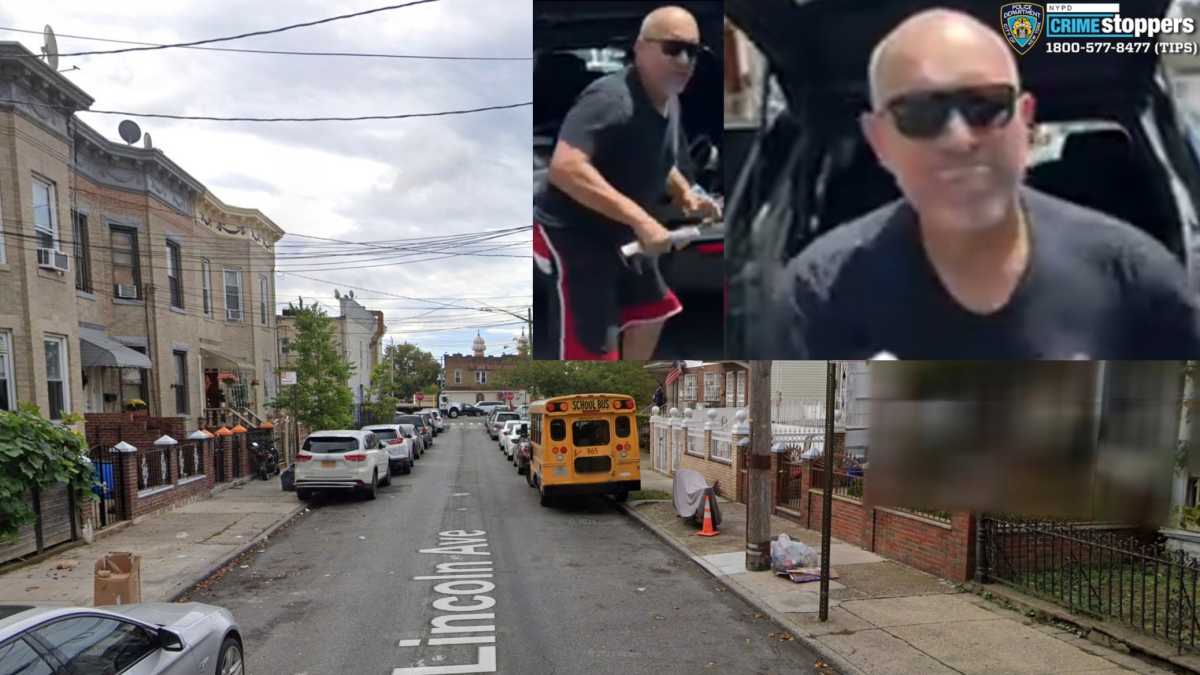Crown Heights tenant activist Michael Hollingsworth on Aug. 16 announced a candidacy for the 35th City Council district, hoping to replace incumbent Councilwoman Laurie Cumbo when her term expires in 2021.
Hollingsworth, a member of the Crown Heights Tenants Union and Democratic Socialists of America, recently helped file a lawsuit to stop the Franklin Avenue Rezoning which has become a hot-button anti-development issue in the rapidly gentrifying neighborhood.
The issue is just one of Hollingsworth’s leftist credentials as he runs on a platform that promises to prioritize tenants rights, education reform, and police reform as he campaigns for the council seat spanning western Crown Heights, Prospect Heights, Fort Greene, and Clinton Hill.
A resident of Crown Heights for over 40 years, Hollingsworth has been heavily involved with tenant activism in central Brooklyn since 2016, when his landlord began the process of converting his rent stabilized apartment building into pricey condos.
Hollingsworth helped form a tenant association with his neighbors, who he describes as largely Black working class longtime Crown Heights residents.
Rent laws passed by the state legislature in June 2019 made the process of condo conversion much more onerous for landlords, as well as strengthening protections for rent regulated tenants, but Hollingsworth has remained involved in anti-gentrification work in Crown Heights, such as the fight over the Bedford Union Armory and the Franklin Avenue rezoning.
“Things just sort of started to snowball from there,” he told Brooklyn Paper. “In terms of housing, once you get into it, you start to realize that nothing happens in a vacuum.”
Hollingsworth says he started to seriously consider a run on Jan. 9, after his fellow activists opposed to the Franklin Avenue rezoning were arrested while occupying a contested construction site on Carroll Street to prevent developers from violating a temporary restraining order.
While walking home from the 71st Precinct station house after waiting for their release, Hollingsworth thought about how none of the neighborhood’s elected officials came to their defense, despite their attempting to enforce an order of the court.
“As I was walking home I was constantly coming back to the elected’s part of it,” he said. “Even though a lot of systems failed us that day it just kept coming back to me, about a bad politician making a bad decision.”
Hollingsworth is not shy about his opinion of the term-limited incumbent, who he says has a bad habit of ignoring dissenting voices in the community.
“Any dissent in the community is labeled by her as a bunch of gentrifiers who just moved in,” he said of the majority leader. “She has a dismissive way of talking to long-term residents who don’t agree with her.”
Cumbo has been outwardly hostile to new forces in Brooklyn politics such as the Democratic Socialists of America, who count Hollingsworth as a member and recently helped oust numerous incumbents, including central Brooklyn Assemblyman Walter Mosley, an ally of Cumbo’s.
“Many folks do not see what is happening but the recent local election results in Brooklyn demonstrate the power of the gentrification movement,” Cumbo wrote on Facebook in July following the victories of Jabari Brisport and Phara Souffrant Forrest. “The ability to elect unknown candidates of color with the backing of a super majority of white organizational support, with no proven leadership in the community…signifies the end of an era in Brooklyn.”
Hollingsworth said he thinks it’s an unsurprising response from Cumbo.
“I think it’s a cheap shot,” he said in a text message. “From a politician who doesn’t want to own up to the roll she has been, and continues to play in the displacement of long-term Black residents. It’s much easier and convenient for her to blame a bunch of young white folks.”
Hollingsworth hopes a new system will replace the current one of Mandatory Inclusionary Housing, which he labels a failure.
“I’d like to see us work under a system where we just don’t give everything away to developers. We let them determine how many units are going to be affordable, we let them pick the affordability levels,” he said. “I think MIH has been a failure for everyday working class tenants. It’s been great for developers though.”




















